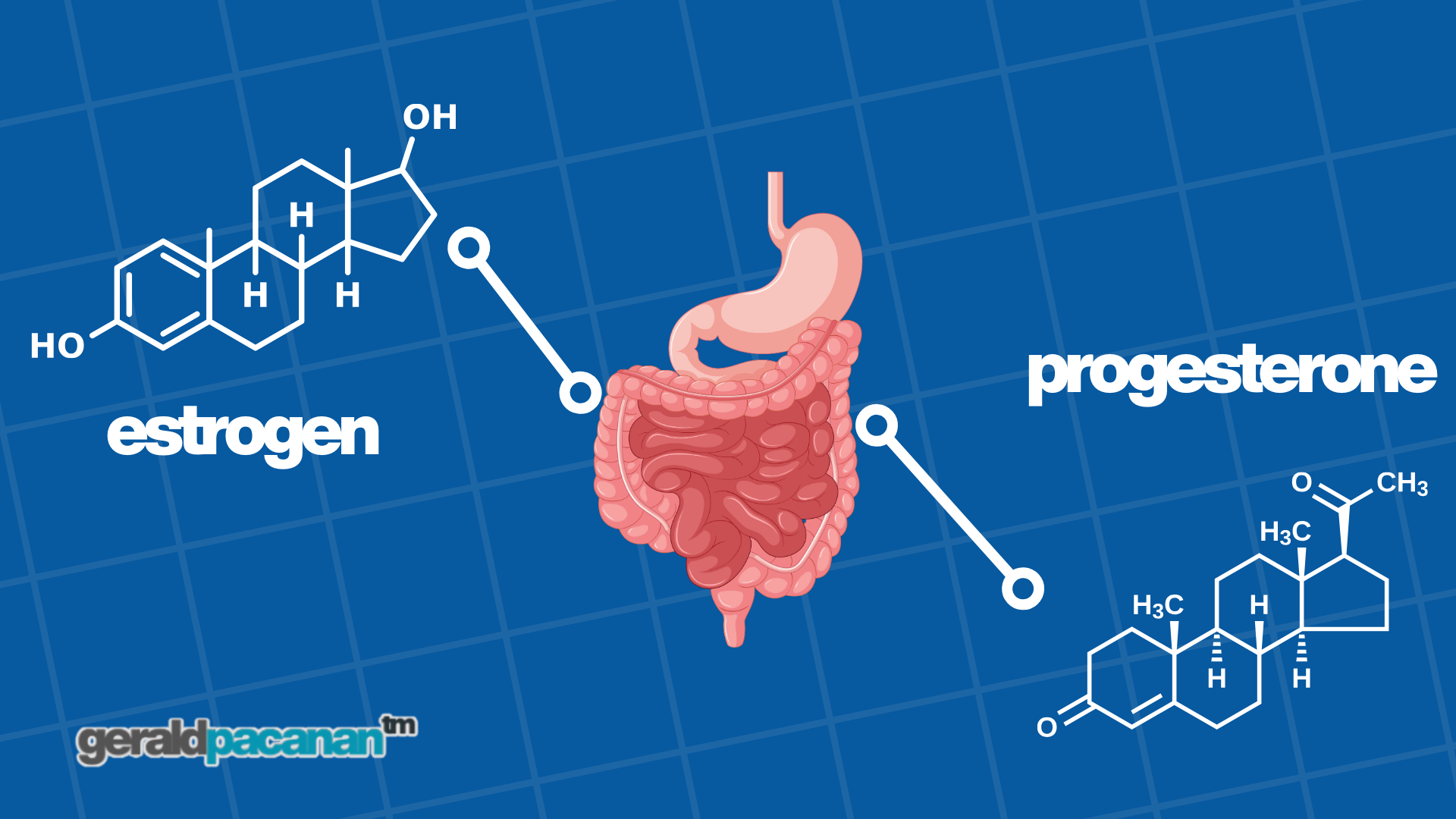Women often experience digestive issues like bloating, constipation, or reflux that fluctuate with their menstrual cycle, pregnancy, or menopause. While it may seem coincidental, science has shown a strong link between female hormones and gut health. Estrogen, progesterone, and other hormonal shifts can significantly affect how the digestive system functions, making it especially important for women to understand this connection.
The Role of Estrogen and Progesterone in Digestion
One of the most fascinating aspects of hormone-gut interaction is the role the gut microbiome plays in regulating estrogen levels. Within the gut, certain bacteria produce an enzyme called β-glucuronidase. This enzyme reactivates estrogen that’s been processed by the liver, allowing it to be reabsorbed into the bloodstream. This process is essential for maintaining healthy estrogen levels. However, if the gut microbiome is imbalanced—due to poor diet, stress, or antibiotics—this function can become disrupted, leading to estrogen dominance or deficiency. These imbalances may contribute to conditions like endometriosis, PCOS, and even increase the risk of hormone-related cancers.

Progesterone also plays a major role in digestion. When its levels are high—during the luteal phase of the menstrual cycle or during pregnancy—it relaxes smooth muscle throughout the body, including in the digestive tract. This can slow down intestinal movement, leading to bloating, constipation, and even acid reflux. At the same time, estrogen can affect how quickly the stomach empties, and fluctuations in estrogen levels can influence gut sensitivity and motility, sometimes worsening symptoms of irritable bowel syndrome (IBS).
Hormonal Shifts Across Life Stages
Throughout different life stages, hormonal changes continue to impact gut health. During menstruation, women often notice slower digestion and increased bloating as progesterone peaks. Pregnancy introduces high levels of both estrogen and progesterone, which can make digestive symptoms like nausea, reflux, and constipation more frequent. In menopause and perimenopause, declining estrogen levels have been linked to reduced gut microbial diversity and increased intestinal permeability—also known as “leaky gut.” This can lead to higher inflammation, weaker immune function, and even mood disturbances.

Interestingly, women are more prone than men to gastrointestinal disorders such as IBS and functional dyspepsia. This is partly due to hormonal influences, but also the interaction between stress, the gut-brain axis, and fluctuating sex hormones. For example, cortisol—the body’s main stress hormone—can impair gut barrier function and disturb the balance of bacteria in the microbiome. Chronic stress, which disproportionately affects women, can therefore amplify both digestive and hormonal problems.
Fortunately, there are practical steps women can take to support both gut and hormonal health. A diverse, fiber-rich diet that includes fermented foods like yogurt, kimchi, and sauerkraut helps nourish beneficial gut bacteria. Foods high in phytoestrogens, such as flaxseeds, may also support healthy estrogen balance. Tracking symptoms in relation to your menstrual cycle can provide valuable insights into patterns and triggers. Reducing stress through mindfulness, regular exercise, and adequate sleep also plays a critical role in maintaining both hormonal and digestive health.
In conclusion, the relationship between hormones and gut health is deeply interconnected—especially for women. By understanding how estrogen and progesterone influence digestion, women can take proactive steps to support their health across every stage of life. Whether you’re dealing with cycle-related bloating, pregnancy-induced constipation, or digestive shifts during menopause, a holistic approach that considers both hormones and gut function can lead to more effective and lasting solutions.


